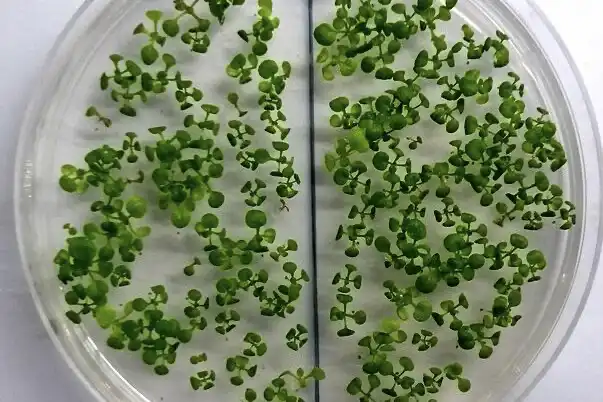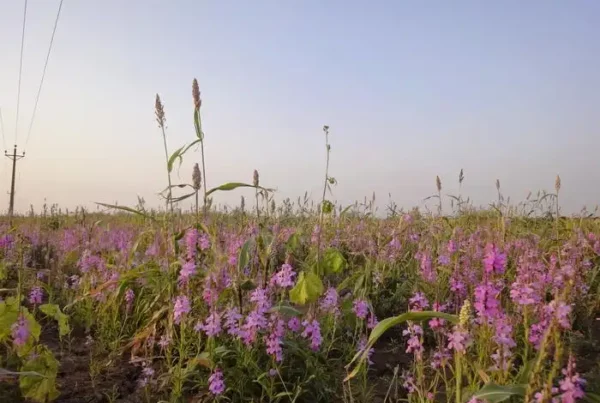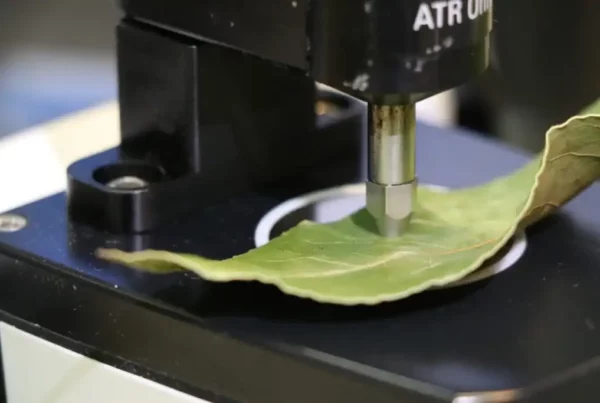The Global Plant Council and Frontiers in Plant Science are delighted to announce the winning Research Topic from the 2022 Global Plant Council Prize: “AI, Sensors and Robotics in Plant Phenotyping and Precision Agriculture, Volume II”, led by Dr. Yongliang Qiao (University of Adelaide), Dr. João Valente (Wageningen University), Dr. Yu Yiang (Cornell Agritech), Dr. Zhao Zhang (China Agricultural University), Dr. Donjian He (Northwest A&F University), and Dr Daobilige Su (China Agricultural University).
The GPC and Frontiers in Plant Science partnered again in hosting the annual Global Plant Council Prize, which is awarded to outstanding article collections (“Research Topic”) submitted to the Frontiers journal. This partnership falls under GPC’s Early-Career Researcher International Network (ECRi), helping early-career researchers to network, gain visibility and enhance their impact. Each winning editors team are awarded full waivers for submissions to the journal, allowing them to freely share their work on the wide-reaching open-access Frontiers platform.
The first clasified 2022 collection unites articles exploring “AI, Sensors and Robotics in Plant Phenotyping and Precision Agriculture, Volume II”, including plant production needs to be improved in a sustainable manner to accommodate a rising global population and anticipated climate change.
We would like to congratulate the editors on their successful Research Topic. Dr. Yongliang Qiao (University of Adelaide) and Dr. João Valente (Wageningen University) have agreed to answer to a short interview.
- Hi both, congratulations! Can you tell us a bit more about your background and why you chose to pursue plant science as a career? Did you have a role model or mentor that inspired you?
Yongliang Qiao: I grew up in a village where farming was the main way of life. I was inspired to reduce the labor work of farmers, like my parents, through agricultural electrification and automation technology. To achieve this dream, I pursued my undergraduate and graduate degrees in field of agricultural electrification and automation at Northwest A&F University. Then I further pursue a Ph.D. in computer science at the University of Technology of Belfort-Montbéliard in France.
After completing my Ph.D., I joined the Australian Center for Field Robotics (ACFR) at the University of Sydney, the world’s largest field robotics institute. Here, I integrated artificial intelligence, sensors, and robotics for smart farming. Four years later, I joined The Australian Institute for Machine Learning (AIML), The University of Adelaide, continue my research on artificial intelligence, agricultural robots, and smart farming.
As for role models or mentors, I have to thank my master’s supervisor, Prof. Dongjian He, who was instrumental in shaping my research interests and guiding me towards smart agriculture. I also have great admiration for scholars like Prof. Salah Sukkarieh, a top scientist who led the strategic research and industry engagement program in the world’s largest field robotics institute, and Prof. Javen Qinfeng Shi, an internationally recognized researcher in both high-end artificial intelligence research and real-world applications with high impact. Their insights and expertise have given me a new perspective on AgTech, including agricultural robotics and artificial intelligence, and I continue to learn from them today.
João Valente: I have started working with aerial robotics almost 15 years ago in the La Sapienza University of Rome (Italy). I did my BSc and MSc in Computer Science & Electronics Engineering in the New University of Lisbon (Portugal), and my MSc and PhD in Robotics and Automation in the Polytechnic University of Madrid (Spain). In between, I have been visiting researcher in Brussels and New York.
I have been passionate by nature and agriculture since I was a kid. My family roots are in the countryside where generation over generation they have dedicated to agriculture. I was the first generation to born and to grow in a large city. Soon I also discover the enthusiasm for science and technology. When I was child, I was one atypical kid. I enjoyed when my electric toys broke so I could disassemble it and fabricate my own robots.
I am happy that I was able to combine both passions and that today I am contributing for a more sustainable farming practices with the help of robotics technology.
- How is your research contributing to the most pressing areas of agriculture?
Yongliang Qiao: The growing global population and decreasing agricultural labor force present challenges for the future of agriculture. My current research focuses on integrating cutting-edge technologies, such as Artificial Intelligence (AI), smart sensors, and robotics, with agriculture to enhance farming efficiency and overall output. By employing adaptive perception, intelligent decision-making, and smart control, we can develop autonomous agricultural robotics capable of executing tasks like plowing, planting, managing, and harvesting.
Furthermore, the combination of information, agronomy, and agricultural machinery will lead to an intelligent agricultural machinery operation system, thereby promoting the modernization and advancement of intelligent agricultural production. This will also provide theoretical and technical support for the development of unmanned farms. Overall, I endeavour to the development of sustainable agricultural practices that reduce reliance on chemicals, fertilizers, and labor inputs while simultaneously improving crop yield and quality.
João Valente: My research interests lie within Unmanned Aerial Vehicles (UAV), Robotics, Artificial Intelligence (AI) and Remote sensing. I have focused all my career on combining these technologies to develop robust solutions for Precision Agriculture and Ecology Management.
Aerial robotics has come a long way in the past few decades, particularly in the fields of real-time perception in Agriculture. These technologies have ushered in a new era of robotics where robots can sense their environment in real-time and make decisions based on that data. However, aerial robotics manipulation in Agriculture is yet on its infancy.
Combining real-time perception and manipulation allows aerial robots to perform complex tasks such as harvest or site-specific spraying. In agriculture, aerial robots with real-time perception and manipulation can adapt to changing conditions on the environment and adjust their behaviors accordingly. They can also detect crop deceases and apply treatment in real-time, improving product quality and reducing waste.
Overall, I will focus my research line on aerial real-time perception and manipulation which are key technologies to increased efficiency, reducing costs and time required for inspection and maintenance in Agriculture and Ecology Management.
- Dr Qiao, as an early career researcher, what do you envision achieving in your field?
Yongliang Qiao: Plants and their products are essential for food security and human survival. My vision is to integrate cutting-edge technologies such as AI, big data, and robotics with agriculture to realize smart farming through automatic agricultural production information perception, quantitative decision-making, intelligent control, precise input, and personalized service. The ultimate goal is to develop intelligent agricultural systems and unmanned farms that can effectively alleviate the shortage of rural labor force and improve the efficiency and benefits of agricultural production.
- Can you share your thoughts about highlighting your research area in an open-access platform like Frontiers in Plant Science?
Yongliang Qiao: I believe that it is essential to disseminate research findings widely and make them accessible to the scientific community, policymakers, and the public. Open-access platforms like Frontiers in Plant Science provide an excellent opportunity for me to stay up-to-date with the latest research and contribute to the advancement of knowledge, while increasing the visibility and impact of my research.
João Valente: In my opinion open-access platforms such as the Frontiers in Plant Science have revolutionized science in many positive ways. Today open access platforms allow users to freely access and reuse scholarly articles and research data, thereby promoting innovation, collaboration, and knowledge sharing without any barriers. Another important benefit is that promotes inclusion and diversity. It provides researchers, students, and the general public with an equal opportunity to access scholarly information. This is particularly important for researchers and students from developing countries where access to scientific journals may be limited. Finally, open-access platforms have the potential to increase the visibility and impact of scholarly works by making them more discoverable and creating opportunities for their reuse and citation.
- Any past-time activities that you enjoy after a long day/week of working in the lab?
Yongliang Qiao: Swimming, jogging, and watching movies are my favorite activities.
João Valente: Travelling around the world with my wife; cooking to my friends; painting and collaging on Sunday’s morning while listening bossa nova; attending to film festivals that nobody knows; crossing the Dutch border with my gravel bike; Yoga’ing when is raining which conveniently happens almost every day.
- Thank you for your time!







